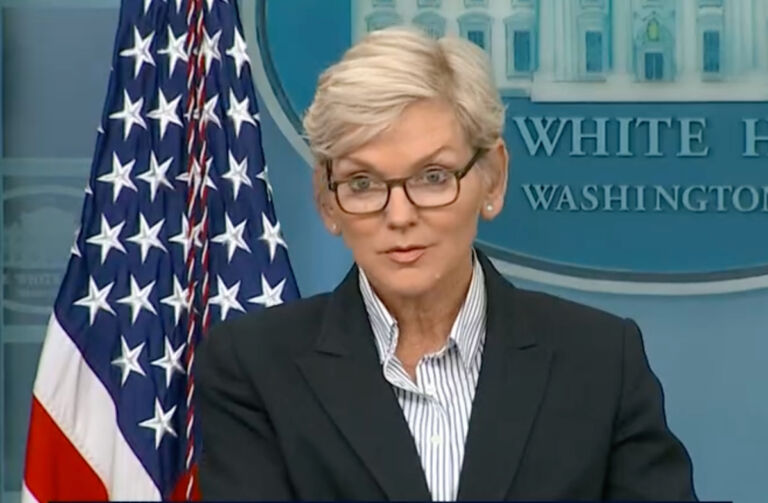Editors at the Washington Examiner urge congressional Republicans to respond to the U.S. energy secretary’s recent electric vehicle excursion.
Energy Department Secretary Jennifer Granholm had a not-so-brilliant idea. She’d make a four-day tour from Charlotte, North Carolina, to Memphis, Tennessee, to prove how easy summer road trips are in electric vehicles.
She ended up with an irate family trapped with their baby in a sweltering electric car calling the police because Granholm’s advance team, in a gasoline-fueled vehicle, was blocking the only available charging station in Grovetown, Georgia.
The police couldn’t do anything because, apparently, it is legal for a non-EV car to hold a charging spot for an electric vehicle that is not yet there. But Republicans in Congress can do something to make sure this scene doesn’t play out again.
Consumer analytics company J.D. Power says worry about not being able to get to a charger is the No. 1 reason why people don’t buy electric cars. There are too few charging stations, and many are slow or broken.
Regions such as the southeast and mountain west don’t have stations outside urban areas, which makes electric road trips impossible.
Despite unreliable and uneven infrastructure, in March 2022, President Joe Biden’s Environmental Protection Agency allowed California to set carbon emission requirements stricter than the national standard and mandate electric vehicle sales. …
… Since California is such a large market and the other states have tied their markets to California, many carmakers let the Golden State’s standard be a de facto national standard.
Reps. John Joyce (R-PA), Gus Bilirakis (R-FL), Bob Latta (R-OH), and Jay Obernolte (R-CA) have stepped in with legislation to revoke any EPA waiver, including the one granted to California, that would “limit the sale or use of new motor vehicles with internal combustion engines.”
The legislation passed out of the House Energy and Commerce Committee in July, setting up a possible floor vote this week.
House Republicans should force Democrats to vote on it, and Senate Republicans should make Democrats object to unanimous passage in the upper chamber.


